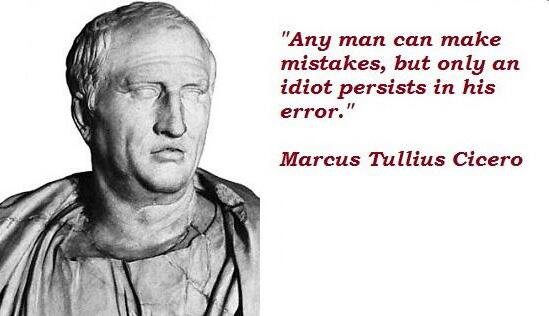Are Lawyers All Raging Psycopaths?
Editorial

The book Wisdom of Psychopaths by University of Oxford psychologist Kevin Dutton has recieved a lot of attention from the media and has been reviewed in the Washington Post, Wall Street Journal, and The Guardian. Dutton argues that there are “functional psychopaths” who—unlike criminal psychopaths—use their unempathetic, ruthless, and charismatic personalities to succeed in mainstream society. Dutton goes further, however, to postulate that some jobs are especially fertile grounds for functional psychopaths.
Based on Dutton's research, the second most psychopathic profession is that of a lawyer. (The first is a CEO). This has spurred a lot of discussion in the legal community.
Dutton argues that psychopathic traits such as arrogance, ruthlessness, deceitfulness, manipulation, and charisma can help CEOs and attorneys succeed in their professions. According to the Diagnostic and Statistical Manual of Mental Disorders;
Individuals [with psychopathic personality disorder] are arrogant and self-centered, and feel privileged and entitled. They have a grandiose, exaggerated sense of self-importance and they are primarily motivated by self-serving goals. They seek power over others and will manipulate, exploit, deceive, con, or otherwise take advantage of others, in order to inflict harm or to achieve their goals. They are callous and have little empathy for others’ needs or feelings unless they coincide with their own. They show disregard for the rights, property, or safety of others and experience little or no remorse or guilt if they cause any harm or injury to others. They may act aggressively or sadistically toward others in pursuit of their personal agendas and appear to derive pleasure or satisfaction from humiliating, demeaning dominating, or hurting others. They also have the capacity for superficial charm and ingratiation when it suits their purposes. They profess and demonstrate minimal investment in conventional moral principles and they tend to disavow responsibility for their actions and to blame others for their own failures and shortcomings.Psychopathic traits of self-confidence, cold-heartedness, manipulation, deceitful charm, and ruthlessness might help in some legal situations. But this view, taken alone, is very simplistic. A psychopathic inability to be honest, be considerate, and "play nice" can be absolutely career-ending for a lawyer. Although it is not apparent from shows about lawyers on television, lawyers get disbarred all the time for carrying out some of the "psychopathic" behavior described above. The American Bar Association ("ABA") enforces its Rules of Professional Responsibilty actively, and a lawyer that behaves unethically not only risks losing his job at a law firm, but of getting sanctioned by the ABA or by a court. Indeed, the lawyer who wrote Confessions of a Sociopath admits that her sociopathic tendencies got her fired from a top-tier law firm.
Law is seldom as dramatic or hostile as portrayed on television; and for most attorneys, courtesy, professionalism, respect, and honesty is paramount. These traits are required in order to win over clients, deal with opposing counsel productively, settle on cases that should be settled, interact with other lawyers on a regular basis, gain referrals from colleagues, and not aggravate judges (who tend to detect and abhor attempts at manipulation, gaming, unnecessary aggression, or dishonesty).
According to one of the most successful litigators in America, known for his unparalleled history of legal victories in court, said that a good attorney is an attorney who can get a positive recommendation from: (1) a client that he represented and lost a case for; and (2) a lawyer that he opposed and won a case against.
In the meantime, if you are opposing psychopaths, you need to expose the depraved fraud artists.
Hemingway said, “There is nothing noble in being superior to your fellow man; true nobility is being superior to your former self.” He didn't get that.

Click here to choose the platform
to read "Preserving Their Legacy".







